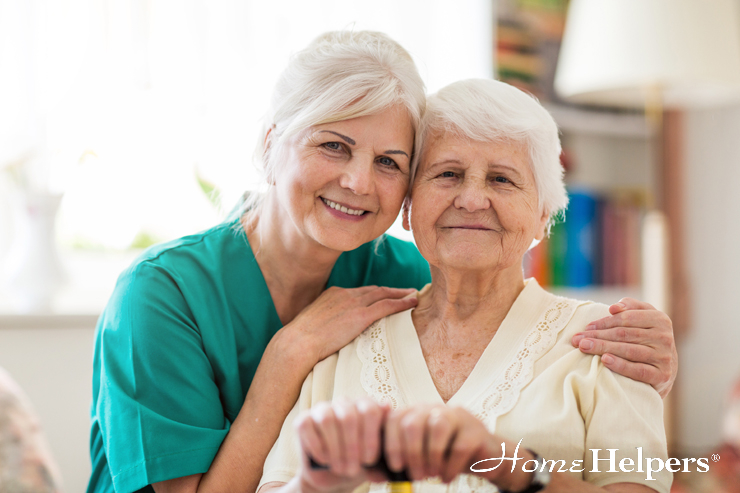Caregivers these days suffer from something known as compassion fatigue and burnout. While you may not have heard these terms before, they are very real, and you might identify with them as we continue to live in a state of emergency due to Covid-19. Just how do you stay positive as a caregiver during these times? Read on, we’ve got some tips for you!
Caregivers have a lot to deal with, juggling clients’ needs as well as their own. Even without the stress of coronavirus, you probably have had to stay positive and balance life while multiple plates are spinning. The following tips will not take much time and can also help your client who is receiving your care, making it beneficial for all involved!
Caregiving Tips for Maintaining a Positive Attitude
Learn how to take feelings that are negative from feeling stressed out, to feelings of calm and positivity, with the following tips:
1. Stop and pause. It’s been proven that in the midst of a stressful situation, simply stopping and taking some deep breaths and slowing your breathing down can help you calm down and regain control.
2. Stay thankful! If you’ve never kept a gratitude journal, start now! Nothing beats the blues better or faster than listing things you are thankful for. Someone else always has it worse than you do, so it’s usually easy to count your blessings, even in the midst of hardship!
3. Be present and mindful. This is simply the practice of staying in the present moment as much as you can. Being present in the here and now allows you to lay down worry over the past and the future. Stay present and stay thankful!
4. Don’t be afraid to reach out and ask for help! If you are the main caregiver for a family member, professional caregiving services are there to support and help you! This will allow you to take breaks when needed and get some fresh air for yourself. Remember—home healthcare agencies are there to offer support to you!
5. Cook and eat healthy. Food is fuel, both for our bodies and our minds. Eating healthy nutritious meals is critical for a healthy and positive outlook. Take a few minutes to think about your favorite foods, as well as those of the person you are caring for. Prepare those meals as often as you can!
6. Reach out and talk to someone. Talk therapy really is super helpful and doesn’t have to be time-consuming. Whether you call a friend and chat for a few or a therapist who can help support you through the stresses of being a caregiver, talking is crucial for your mental health.
7. Get out and exercise! Moving around is good for your body and your mind. Try yoga or a simple DVD at home. Even a walk around the block will do wonders for your energy levels.
8. Listen to music. Music is some of the best therapy there is, especially for dementia patients. Find music that you and your loved one enjoy and make some new memories!
Be sure and spend time in nature and enjoy the fresh air. It will do wonders for your stress level and help you keep a positive outlook. Aging can be tough but all any of us really want is to be connected with our loved ones and stay as independent as possible. You can help provide that positive assurance that is needed, and we are here to help you! We hope that you and yours are staying healthy and positive during this unprecedented time in our nation’s history!
Please contact us if you have any questions.
Home Helpers of Cincinnati and Northern Kentucky is a locally-owned, trusted home health care agency and offers quality, compassionate senior in-home care services including home care assistance, personal care, companion care, respite care, 24-hour home care, Alzheimer's & dementia care, Parkinson's care, post-operative care, support for stroke recovery, as well as homemaker services in Cincinnati, Kenwood, Blue Ash, Indian Hill, Greenhills, Fort Thomas, Hyde Park, Madeira, Sharonville, Mason, West Chester, Mt. Lookout, Anderson, Wyoming, Covington, Burlington, Florence, Montgomery, Mt. Washington, Finneytown, Milford, Newport, Clifton, and Forest Park.
Legal Disclaimer
This blog provides general information and discussions about medicine, health, and related subjects. The words and other content provided in this blog, and in any linked materials, are not intended and should not be construed as medical advice. If the reader or any other person has a medical concern, he or she should consult with an appropriately-licensed physician or other healthcare workers.
Never disregard professional medical advice or delay in seeking it because of something you have read on this blog or in any linked materials. If you think you may have a medical emergency, call your doctor or 911 immediately.
The views expressed on this blog and website have no relation to those of any academic, hospital, practice or other institution with which may have been mentioned or linked to in the article.

